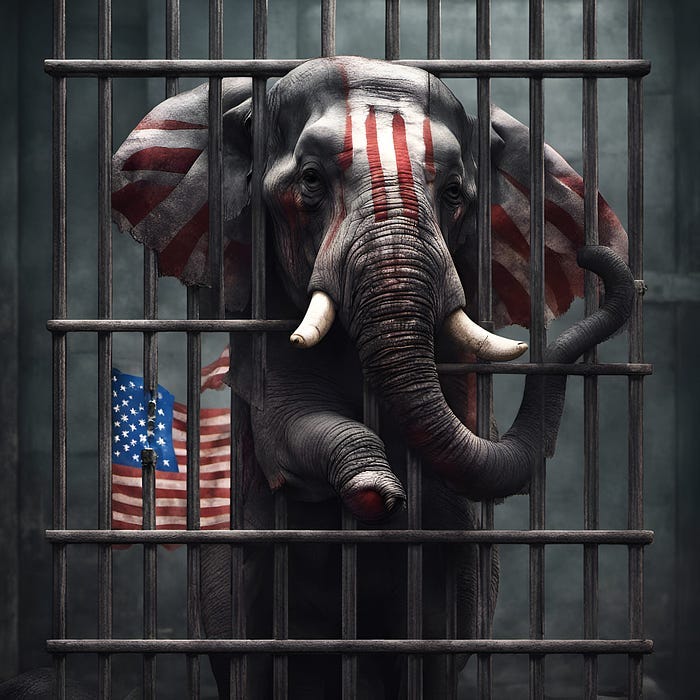What If a Convicted Criminal Becomes President?
Understanding the Implications
Childhood Aspirations and the American Dream
From a young age, many Americans are instilled with an ambitious and inspiring aspiration: to one day become the President of the United States. This dream, often nurtured in school classrooms and around family dinner tables, is more than a mere career ambition; it’s a symbol of the highest moral and civic achievement one can attain in American society. It reflects the quintessential American Dream — the belief that anyone, regardless of their background, can rise to the zenith of success and leadership. However, the psychological impact on society, especially on the younger generation, could be profound if the paradigm shifted to a reality where a convicted criminal could occupy the Oval Office. Such a scenario could not only confuse these long-held aspirations but also fundamentally alter the very essence of what it means to aspire to be President.
The Hypothetical Scenario of a Convicted Criminal in the Oval Office
Imagine a scenario where a leader of the United States, such as the President, is known to be or becomes a convicted criminal. This thought experiment is not just a plot for a political thriller; it poses serious questions about the symbolism, ethics, and functionality of one of the most powerful offices in the world.
Symbolism and Ethical Standards of the Presidency
The presidency of the United States has long stood as a symbol of leadership, integrity, and democratic ideals. It’s a position often presented to children as the pinnacle of success and public service, embodying the American Dream. The concept that “anyone can grow up to be President” is ingrained in American culture, emphasizing that success is attainable through merit, regardless of one’s background.
However, if a convicted criminal were to occupy this esteemed office, it could fundamentally shift how the presidency is perceived. The ideals of lawfulness, moral leadership, and public trust, traditionally associated with the presidency, might be severely undermined. This could challenge the nation’s collective ideals and aspirations, altering the symbolic and cultural significance of the role.
Diplomatic and International Relations Impact
On the international stage, the leadership of a country plays a crucial role in diplomatic relations, economic partnerships, and global influence. A criminal indictment or involvement in illegal activities at such a high level could significantly affect a country’s standing. Allies might view the nation with skepticism, reevaluating their diplomatic ties and trade agreements. The country’s influence in international affairs could wane, raising questions about its commitment to international norms and laws.
National Security and Handling of Sensitive Information
Moving to a related concern, consider the handling of national secrets by high-profile leaders. The reckless handling of classified information, especially by a controversial figure like a former president, poses significant risks. Such behavior can lead to the exposure of sensitive information, endangering operations and personnel. It can strain relationships with allies who depend on the United States for shared intelligence and security cooperation.
The media and public perception are heavily influenced by such actions. Controversial behaviors receive extensive coverage, impacting public opinion and the political discourse. Internationally, these actions can affect perceptions of American stability and reliability, influencing global views of U.S. leadership.
Conclusion: Democracy, Accountability, and the Future
These scenarios underscore the importance of ethical leadership and the rule of law. They highlight the need for robust legal and political systems capable of addressing such unprecedented situations. How a democracy responds to these challenges speaks volumes about its health and resilience.
In a world where the lines between reality and fiction are increasingly blurred, these thought experiments are not just speculative; they are necessary discussions about the future of governance, ethics, and international relations in the 21st century.


